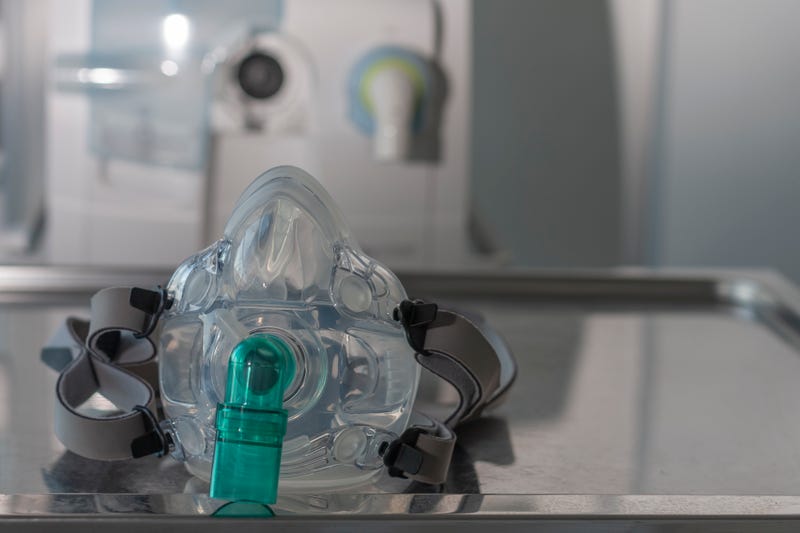
The United States is getting slammed by respiratory illnesses.
Health officials say things could get worse as the holidays and associated gatherings approach.
The Centers for Disease Control reports that flu vaccination rates are lagging this year and COVID-19 cases are also jumping up again after the Thanksgiving holiday.
"This year's flu season is off to a rough start. Flu's here, it started early and with COVID and RSV also circulating, it's a perfect storm for a terrible holiday season," Dr. Sandra Fryhofer, board chair of the American Medical Association, said during a CDC press conference, per NBC News.
For the week ending November 26, nearly 20,000 people were hospitalized from flu -- nearly double the number reported the previous week, the CDC reported.
The CDC estimates that, so far this season, there have been at least 8.7 million illnesses, 78,000 hospitalizations, and 4,500 deaths from flu. In comparison, there was an estimated 9 million cases and 5,000 deaths over the entire 2021-22 flu season.
"Hospitalizations for flu continue to be the highest we have seen at this time of year in a decade, demonstrating the significantly earlier flu season we are experiencing," said CDC Director Rochelle Walensky.
Meanwhile, the RSV virus is surging in young children, with cases skyrocketing in recent weeks, overwhelming hospitals.
RSV is a common respiratory virus that usually causes mild, cold-like symptoms. Most people recover in a week or two, but RSV can be serious, especially for infants and older adults. RSV is the most common cause of bronchiolitis (inflammation of the small airways in the lung) and pneumonia (infection of the lungs) in children younger than 1 year of age, according to the CDC.
Hospitalizations for COVID-19 are also up week over week. The current 7-day daily average for November 23–29 was 4,201 -- a 17.6% increase from the prior 7-day average, the CDC said.
Walensky called the increase in cases of the three viruses "especially worrisome as we move into the winter months, when more people are assembling indoors with less ventilation, and as we approach the holiday season when many are gathering with loved ones and across multiple generations."
The American Medical Association recommends that everyone who is eligible, especially those at higher risk, urgently receive their updated COVID-19 booster or COVID-19 primary series if not yet vaccinated. The updated vaccine is expected to help reduce severe illness, hospitalizations and death for the most vulnerable patients, including older adults, those who are pregnant and recently pregnant, and those from historically minoritized communities, the AMA added.
The CDC recommends that everyone ages 6 months and older get a flu vaccine. Vaccination helps prevent infection and can also prevent serious outcomes in people who get vaccinated but still get sick with flu, the CDC said.
There is no vaccine to prevent RSV. However, there are steps you can take to help prevent the spread of RSV -- especially if you have cold-like symptoms. The CDC recommends:
• Cover your coughs and sneezes with a tissue or your upper shirt sleeve, not your hands.
• Wash your hands often with soap and water for at least 20 seconds.
• Avoid close contact, such as kissing, shaking hands, and sharing cups and eating utensils, with others.
• Clean frequently touched surfaces such as doorknobs and mobile devices.
Additionally, the CDC says people with cold-like symptoms should not interact with children at high risk for severe RSV disease, including premature infants, children younger than 2 years of age with chronic lung or heart conditions, children with weakened immune systems, or children with neuromuscular disorders. They should also refrain from kissing high-risk children while they have cold-like symptoms.


